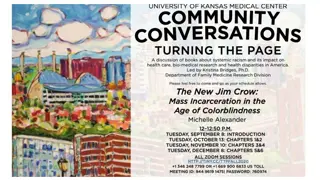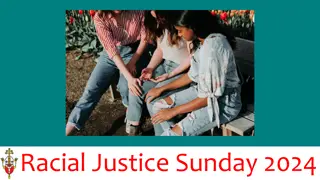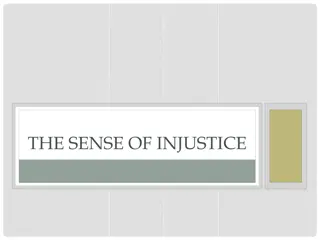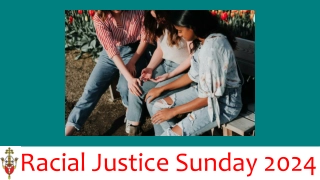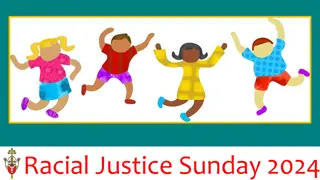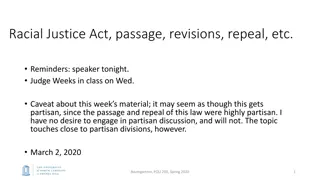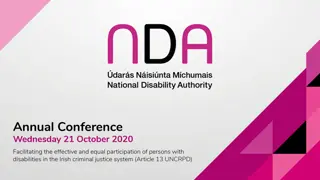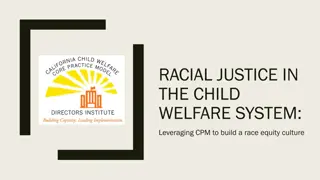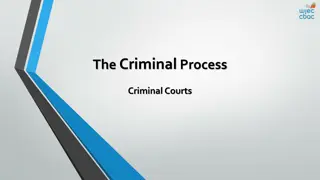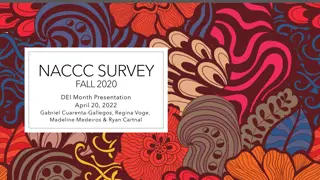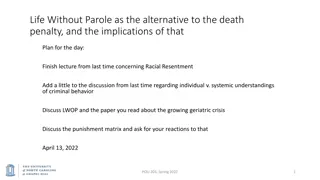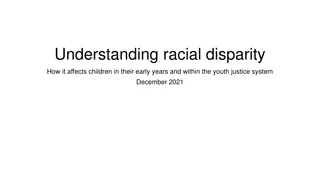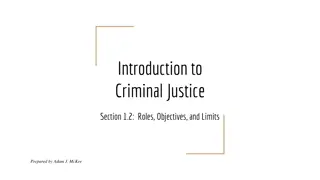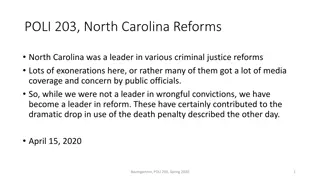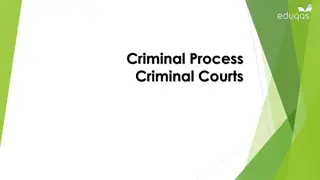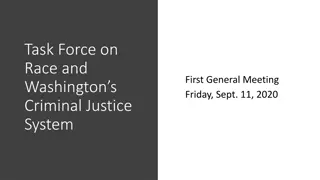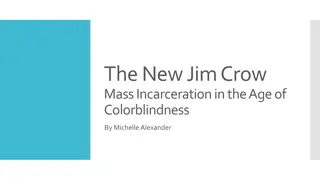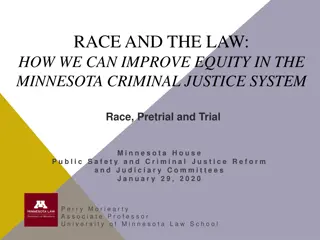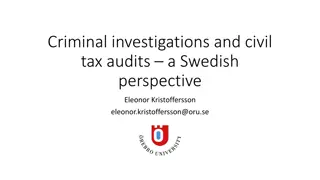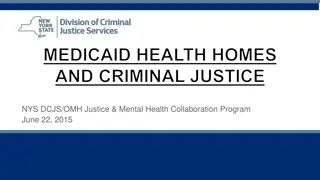Understanding Racial Injustice in America's Criminal Justice System
Exploring the legacy of racial exclusion and systemic discrimination in the US, delving into Michelle Alexander's books on mass incarceration and the perpetuation of racial caste through the criminal justice system. The discussion spotlights the racial disparities in arrests, convictions, and incarceration rates, shedding light on the ongoing impacts of past injustices on present-day realities.
- Racial injustice
- Criminal justice system
- Systemic discrimination
- Michelle Alexander
- Mass incarceration
Download Presentation

Please find below an Image/Link to download the presentation.
The content on the website is provided AS IS for your information and personal use only. It may not be sold, licensed, or shared on other websites without obtaining consent from the author. Download presentation by click this link. If you encounter any issues during the download, it is possible that the publisher has removed the file from their server.
E N D
Presentation Transcript
Our role at KUMC Informal book club one piece of the pie Educate ourselves and practice talking about racism Peer facilitators Spectrum of learning no endpoint Seek out additional support (books, videos, groups) We have not faced our racial history and cannot tell the truth about our racial present. Moving on to intense topics Healing space Michelle Alexander
The New Jim Crow Mass Incarceration in the Age of Colorblindness By Michelle Alexander
A legacy of racial exclusion Generations of black men born in the US have been denied the right to participate in our electoral democracy Jarvious Cotton cannot vote. His great-great-grandfather could not vote because he was a slave. His great-grandfather was killed by the KKK for trying to vote. His grandfather didn t vote due to Klan intimidation His father was barred from voting by poll taxes and literacy tests. Jarvious cannot vote because he has been labeled a felon and is currently on parole.
After the Civil Rights movement, it was no longer socially permissible to use race, explicitly, as justification of discrimination, exclusion and social contempt. We have not ended racial caste in America; we have merely redesigned it. We use our criminal justice system to label people of color criminals and then engage in all the practices we supposedly left behind. Once labeled a felon, Americans are subject to legalized discrimination: Employment discrimination Housing discrimination Denial of the right to vote Denial of educational opportunity Denial of public benefits (including food assistance) Exclusion from jury service
US Bureau of Justice Statistics
African Americans are more likely than white Americans to be arrested convicted experience lengthy prison sentences Racial Disparity African-American adults are 5.9 times as likely to be incarcerated than whites (BJS, 2016)
2018 Rates for men 2,272 Racial Disparity 1,018 392
Those of us who view mass incarceration from a comfortable distance, tend to attribute the staggering increase in incarceration rates in communities of color to the predictable consequences of: POVERTY Popular social justifications for mass incarceration RACIAL SEGREGATION UNEQUAL EDUCATIONAL OPPORTUNITIES PRESUMED REALITIES OF THE DRUG MARKET - like the mistaken belief that most drug dealers are Black
Racial Disparity
Most people sentenced to jail or prison have been convicted of non-violent crimes. 95% of the 10 million yearly arrests are for non-violent crimes (FBI, 2019). Snapshots of the prison population don t tell the whole story of the volume of people cycling in and out on shorter sentences for non-violent crimes.
Honor Confidentiality Small Groups Choose courage over comfort Regard feedback as a generous gesture that should always be met with gratitude
Discussion Questions 1. Did you know that the United States has the highest rate of incarceration in the world? How do you make sense of that knowledge? 2. Did you know that Black people make up 12% of the US population yet represent 33% of the incarcerated population? And that Black people are 5.9 times more likely to be under correctional control than white people? How do you make sense of that knowledge? 3. How are the justifications we make for racial disparities in incarceration rates similar to the those we make for racial health disparities?


